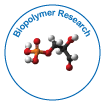Nosso grupo organiza mais de 3.000 Séries de conferências Eventos todos os anos nos EUA, Europa e outros países. Ásia com o apoio de mais 1.000 Sociedades e publica mais de 700 Acesso aberto Periódicos que contém mais de 50.000 personalidades eminentes, cientistas de renome como membros do conselho editorial.
Periódicos de acesso aberto ganhando mais leitores e citações
700 periódicos e 15 milhões de leitores Cada periódico está obtendo mais de 25.000 leitores
Indexado em
- Publons
Links Úteis
Diários de acesso aberto
Compartilhe esta página
Abstrato
Development and use of genus Bacteroides 16S rRNA enzyme Chain Reaction Assay for supply trailing Dog fecal Pollution in Bathing Waters
Khwam R. Hussein, Paul L. Waines, Raid B. Nisr, Gillian Glegg and Graham Bradley
Faecal pollution on bathing beaches poses a possible threat to human health and as a result can also negatively have an effect on the native economy. In instances wherever the supply of such pollution isn't obvious, it's going to be necessary to trace such sources employing a host-specific genetic markers technique. genus Bacteroides species area unit potential indicators for supply trailing of fecal pollution in bathing waters. This study designed specific primer sets to amplify sections of the 16S rRNA cistron distinctive to genus Bacteroides from doggies and used quantitative PCR (qPCR) to quantify such genetic markers in environmental samples. The sensitivity and specificity of the primer sets was determined; they were specific in silico against legendary dog {bacteroides|Bacteroides|genus genus Bacteroides|bacteria genus} sequences and in vitro against Bacteroides sequences originating from human and farm animal excretion. Dog fecal genus Bacteroides contamination was then detected in ocean water throughout the washing season at {a local|an area unita|a neighborhood} beach wherever dogs are prohibited throughout the summer months, in spite of the actual fact that these waters had met EU directive standards supported the culture-based enumeration of fecal indicator microorganism. Quantitative PCR was wont to confirm the limit of detection (LOD) of the dog genus Bacteroides genetic markers in these water samples. The copy range of dog genus Bacteroides genetic markers within the water was low and therefore the LOD of these markers was four copies per reaction. the employment of those dog primers has the potential to provide vital further info once supply trailing fecal pollution at bathing beaches and maintaining water quality.
Diários por Assunto
- Agro e Aquicultura
- Alimentação e Nutrição
- Bioquímica
- Ciência da Computação
- Ciência de materiais
- Ciencias ambientais
- Ciências Clínicas
- Ciências Farmacêuticas
- Ciências gerais
- Ciências Médicas
- Ciências Sociais e Políticas
- Ciências veterinarias
- Economia e Contabilidade
- Enfermagem e cuidados de saúde
- Engenharia
- Engenheiro químico
- Física
- Genética e Biologia Molecular
- Geologia e Ciências da Terra
- Gestão de negócios
- Imunologia e Microbiologia
- Informática
- Matemática
- Química
Revistas clínicas e médicas
- Anestesiologia
- Assistência médica
- Biologia molecular
- Cardiologia
- Cirurgia
- Dermatologia
- Diabetes e Endocrinologia
- Doenças infecciosas
- Enfermagem
- Fisioterapia e Reabilitação
- Gastroenterologia
- Genética
- Hematologia
- Imunologia
- Medicamento
- Medicina Reprodutiva
- Microbiologia
- Nefrologia
- Neurologia
- Odontologia
- Oftalmologia
- Oncologia
- Ortopedia
- Pediatria
- Pesquisa Clinica
- Pneumologia
- Psiquiatria
- Toxicologia

 English
English  Spanish
Spanish  Chinese
Chinese  Russian
Russian  German
German  French
French  Japanese
Japanese  Hindi
Hindi